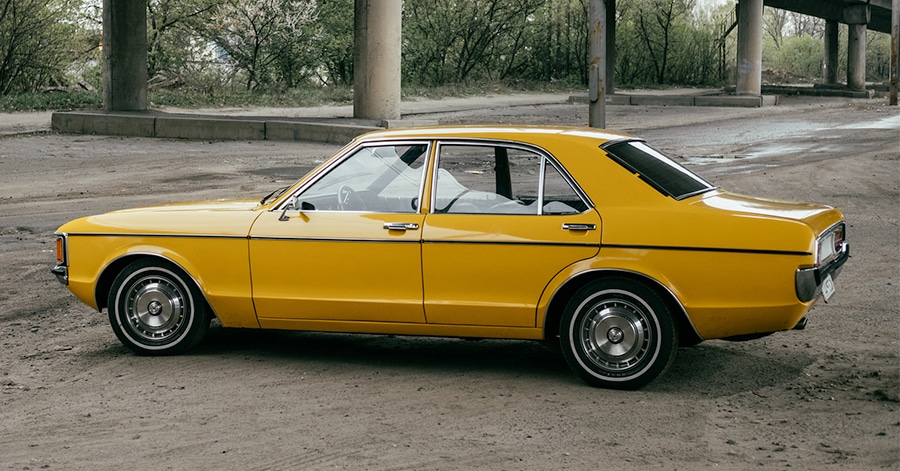Are Older Cars Cheaper to Insure?
 It seems to make sense – older cars should cost less to insure than new cars. After all, they cost less than newer cars, right?
It seems to make sense – older cars should cost less to insure than new cars. After all, they cost less than newer cars, right?
[sc_content_link label=”Get today’s insurance rates.” cat=”auto”]
While all of this is true, it’s not a general rule that older cars are cheaper to insure than newer cars. Depending on the situation, it could be the other way around. We help you discover the reasons below.
Your Driving History Matters the Most
The most important factor in your car insurance is your driving record. It doesn’t matter if you drive an old or new car, how you drive it is what insurance companies care about the most. Insurance companies take a gamble when they insure you. They are ‘gambling’ on the fact that you won’t get into an accident. Your driving history will help them with that gamble.
If you have a history of speeding tickets and accidents, you are a high-risk driver. It won’t matter what you drive, for the most part, your insurance premiums will be higher. If you have a good driving history, though, you may have better luck saving on your premiums.
Insurance companies take your driving history into consideration when determining your premiums. It weighs much higher than what type of or what year car that you drive.
The Car Make and Model Matter
Another factor insurance companies consider is the car’s make and model. Certain car brands are more expensive to fix, whether they are new or old. This is especially true for those brands made overseas. Insurance companies look at the history of repairing the make and model. Is it very costly? If so, it will cost more to insure the car.
That being said, sometimes older cars cost slightly less because they don’t use the same technology they use today. Technology often equals higher prices, which can make it more expensive to repair and insure. Don’t assume that because your car is older though, that it will cost less to insure it. Talk with your insurance agent to find out for sure.
Your Age Matters
The age of the driver also dictates your insurance rates. It doesn’t matter if the car you drive is old or new. Insurance companies base your risk on your age, as it dictates your experience level. Young drivers, typically under the age of 25, have the highest risk of an accident and or claim. Up until that point, your premiums may remain high, regardless of what you drive.
Once you hit the illustrious age of 25, your driving record, the number of claims, and the type of car you drive matter, but your premiums should decrease. Again, you may see a slight difference if you drive an older car, but your age and driving record matter the most when it comes to your insurance premiums.
What are the Theft Rates?
Insurance companies pay close attention to theft rates. Again, old vs new isn’t the argument here. Many older cars are routinely stolen too. If you drive a car that has a history of being stolen, expect your premiums to soar. Insurance companies price your premiums based on the risk that you’ll file a claim. If you have comprehensive insurance and your car is stolen or vandalized, the insurance company will need to pay out. They increase premiums to make up for this risk.
[sc_content_link label=”Shop and compare insurance quotes.” cat=”auto”]
The Type of Insurance
Of course, you can limit the types of coverage that you have if you drive an older car. This is really where you will save money.
By law, you have to carry liability insurance. We recommend that you carry as much liability insurance as you can afford. This covers the damages to other cars and people if you cause the accident. You want as much coverage as possible in this area, no matter how old your car may be.
Other coverages that you may be able to skimp on to save money include:
-
Comprehensive insurance
This covers your car should it be stolen, vandalized, or damaged by something other than an accident. Oftentimes the premium plus deductible for this coverage exceeds the value of older cars. This is one coverage that you can either decrease or eliminate in order to save money on your premium.
-
Collision insurance
Collision insurance covers you in the face of an accident (that you cause). Again, if your car isn’t worth enough to warrant the deductible, it may not be worth carrying the coverage. You may want some coverage to at least get back the value of your car should it be totaled, but don’t buy more coverage than you need.
-
Medical payments coverage
This covers you should you cause an accident and have injuries. Again, the type or year of your car doesn’t matter here. Any car accident can result in injuries. In fact, the older your car is, the more protection you may want. Older cars typically have fewer safety features than newer cars, which can put you at risk of further injuries.
The year of your car really doesn’t play a big role when you get car insurance. It may save you a few dollars, but the true cost comes from the car’s history (in general) as well as your own driving history. Always check with your insurance agent regarding the average cost of insurance for a car you are thinking of buying, but don’t make the mistake of assuming older cars will cost less to insure.
[sc_content_link label=”Get the right insurance coverage.” cat=”auto”]
